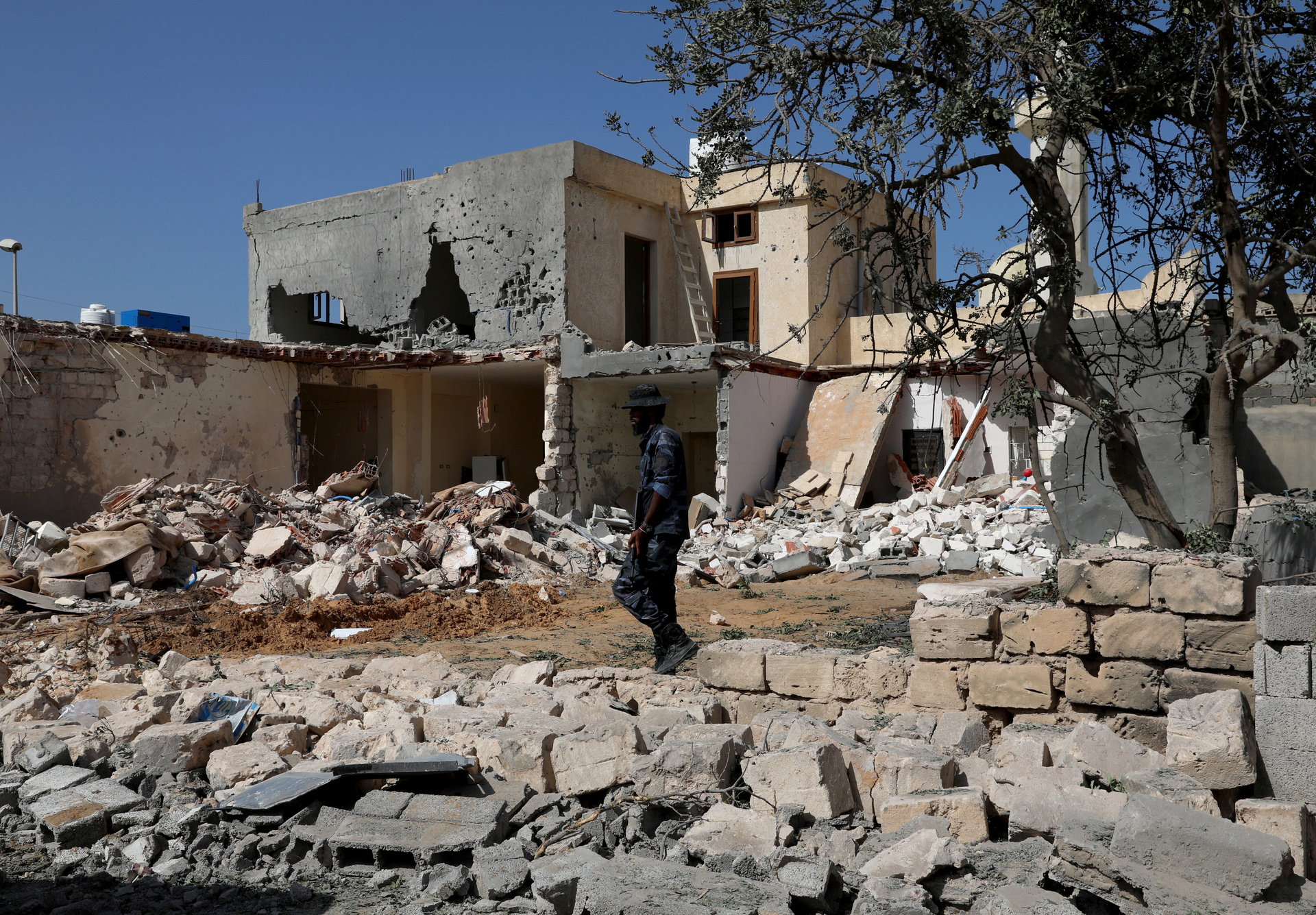The Russian Ministry of Defense reported that the talks held in Moscow prepared a favorable atmosphere for the conference on Libya, which will be held in Berlin.
“The main outcome of the meeting was the achievement of agreement in principle between the warring parties to maintain and indefinitely continue the cessation of hostilities, which creates a more favorable atmosphere for the Berlin Conference on Libya,” the department said.
Negotiations on the situation in Libya took place in Moscow yesterday, in which Russian and Turkish foreign ministers Sergey Lavrov and Mevlut Cavusoglu, defense ministers Sergei Shoigu and Hulusi Akar, as well as the head of the Government of National Accord (PNS) Faiz Saraj and the commander of the Libyan National Army (LNA) Khalifa Haftar. Russian Foreign Minister Sergei Lavrov, following talks, said that Sarraj and Libyan State Council Chairman Khaled Mishri signed an agreement, and Haftar asked for time until the morning to decide.
It is worth noting that on Tuesday there were reports that Haftar left Russia without signing a ceasefire agreement with the PNS. This information was confirmed in the Russian Foreign Ministry.
At the same time, the Libyan military source RIA Novosti reported that Haftar refused to sign, because the document did not contain a clause on the timing of the dissolution of the armed formations acting on the side of the Government of National Accord. In addition, according to the interlocutor of Al Arabiya TV channel, the marshal noted that the proposed draft document ignores some requirements of the army, and also opposed Ankara’s participation in the ceasefire control in the country, and demanded the immediate withdrawal of Turkish troops from Libya.
Turkish President Recep Tayyip Erdogan said in this regard that if the LNA continues the offensive, Ankara "will not stop in order to teach Haftar a well-deserved lesson if he stops the attacks."
The Russian Defense Ministry later explained that in fact, Khalifa Haftar took a positive statement after the negotiations. However, he took it before signing for two days to discuss the document with leaders supporting the Libyan national army of the tribes.
“During the negotiations, the participants reaffirmed their commitment to the sovereignty, independence, unity and territorial integrity of the state. The emphasis is placed on an uncompromising struggle against international terrorism, the Russian department noted. “The work begun in Moscow will continue, as the volume of accumulated intra-Libyan problems requires painstaking work to formulate balanced and mutually acceptable solutions for the parties.”
Recall that the previous talks on Libya were held on January 8 in Istanbul by the presidents of Russia and Turkey, Vladimir Putin and Recep Tayyip Erdogan. The leaders issued a joint statement in which they called on all parties to the Libyan conflict to sit at the negotiating table, as well as to cease hostilities from 00:00 on January 12. LNA and the PNS announced a ceasefire, but warned that they would respond to any violation.
The crisis in Libya began in 2011 after the overthrow and assassination of Muammar Gaddafi, whose regime actually operated in the country for about 40 years. After his fall, two opposing centers of power appeared in Libya. In the north-east of the country there is an interim government led by Abdullah at-Thani, appointed by the parliament in Tobruk. It relies on the Libyan National Army, led by Khalifa Haftar. In the northwest, in Tripoli, there is a Government of National Accord, led by Saraj.
In 2019, Haftar ordered an attack on Tripoli to liberate the city from “terrorists,” in response to which armed groups based in the western regions of Libya announced the start of a retaliatory operation. The Government of National Accord sought military help from Ankara, which recognizes the legitimacy of the Saraj government. The Turkish parliament by a majority vote authorized the sending of the Turkish military to Libya. As Erdogan noted in talks with Vladimir Putin, the Turkish army will not participate in hostilities, but should ensure the security of a legitimate government.
Konstantin Truevtsev, a senior fellow at the Center for Arab and Islamic Studies at the Institute of Oriental Studies of the Russian Academy of Sciences, admitted that many countries are interested in concluding the agreement.
- Tripoli, Libya
- Reuters
- © Ismail Zitouny
“This is Germany, France, and Italy in Europe, judging by the contacts of Vladimir Putin, this is Saudi Arabia, Egypt, the Emirates, and Qatar in the Arab world. This, of course, is Turkey and Russia, which become a kind of guarantors of this ceasefire agreement. Including the US State Department yesterday quite actively supported this agreement. So it’s practically possible to say that the main iconic states of the international community all participate one way or another in this process, ”said Truevtsev.
HSE lecturer Grigory Lukyanov, expert at the Russian Council on Foreign Affairs, noted that failure to negotiate could aggravate the situation.
“Failure to conclude a ceasefire agreement could lead to the LNA renewing offensive actions against the forces of the government of national accord. It, in turn, can turn to Turkey for increased assistance and support, and in the end, Ankara can take advantage of the right that parliament gave to President Erdogan and create its permanent military base in Libya. Which will only lead to the fact that over Tripoli there will be an aviation umbrella of protection from the VLA forces, but it will not bring conflict resolution closer. On the contrary, the status quo, that is, the military and political confrontation of two forces that do not recognize each other, will consolidate and strengthen in the long term, ”the expert noted.

